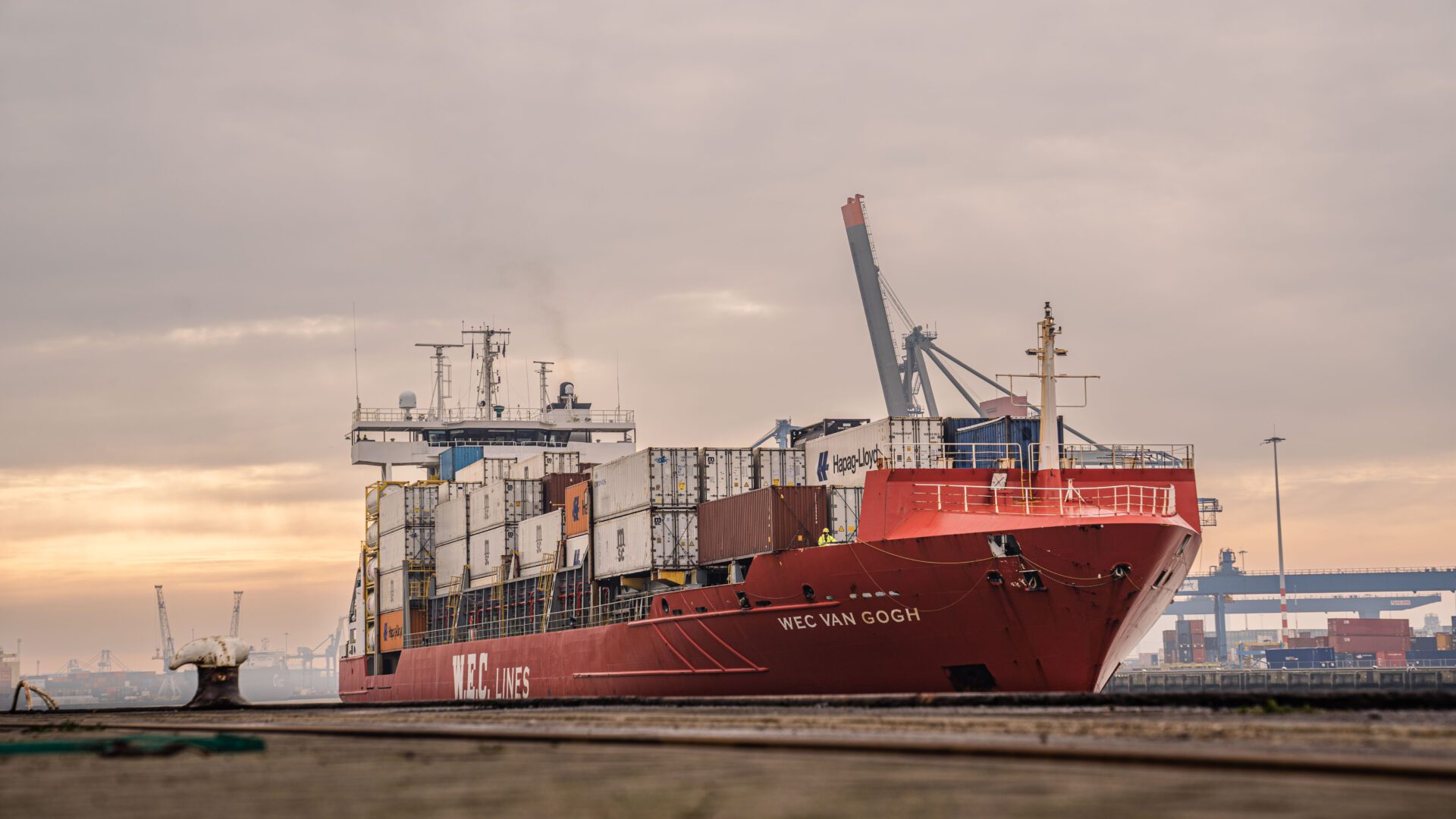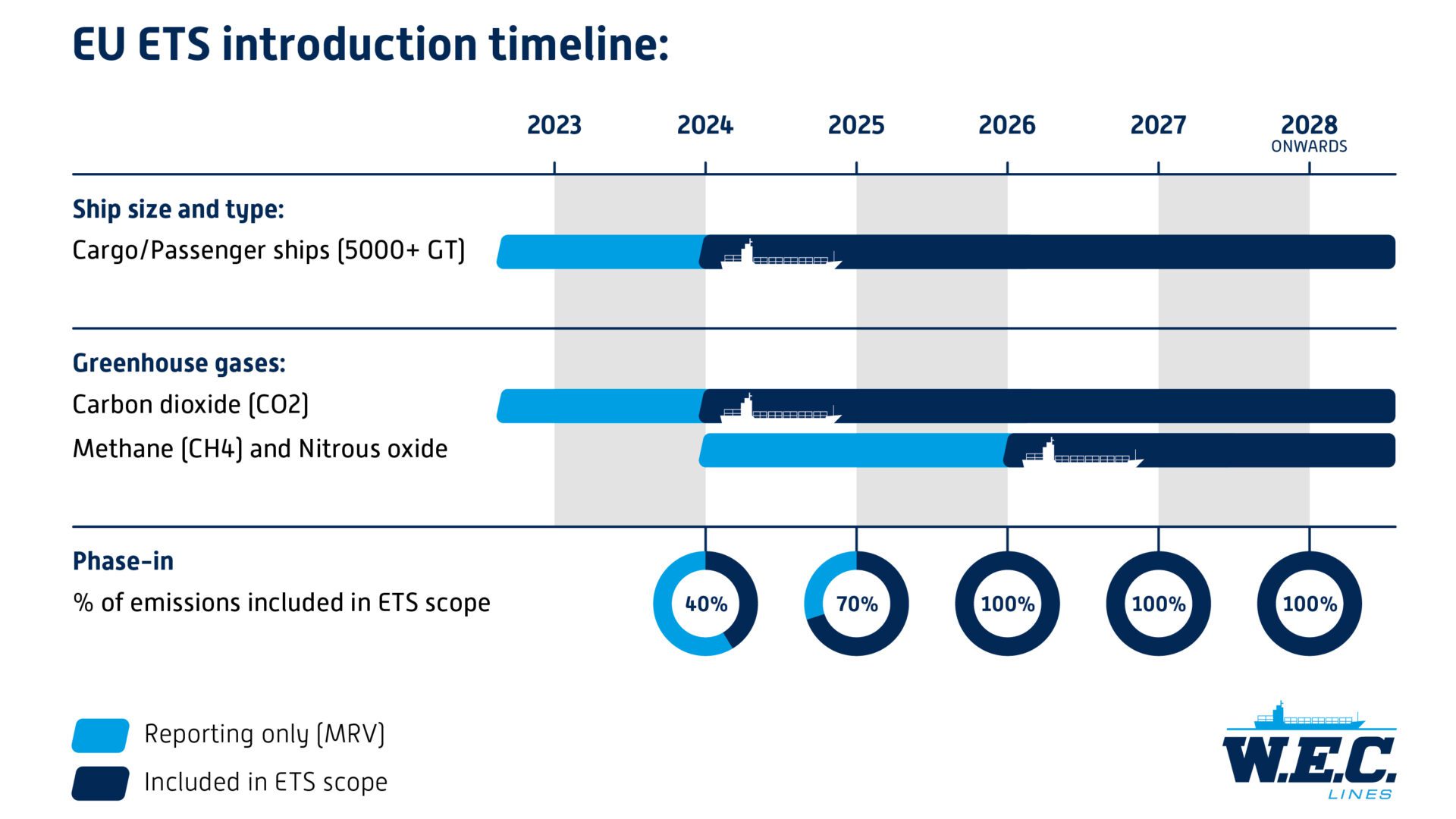EU ETS Explained
The EU ETS will introduce a significant Carbon Tax for international shipping, marking the world’s first large-scale carbon pricing system for this sector, combatting climate change, and reducing greenhouse gas emissions. Under this scheme, emission limits will be set, and the shipping industry will be required to purchase European Union Allowances (EUAs) to compensate for any CO2 emissions generated from their activities. The more CO2 generated, the more EU allowances to be paid. Each EUA represents one tonne of CO2 equivalent emissions. Its goal is a 55% GHG reduction by 2030 (compared to 1990) and net-zero emissions by 2050. EUAs are procured from the Emissions Trading Scheme (ETS), with prices per unit fluctuating in line with standard supply and demand in trading.
Timeline for Shipping
The inclusion of the shipping industry in this scheme will be phased in over three years as follows: 40% coverage as of January 1st, 2024, 70% as of January 1st, 2025, and 100% as of January 1st, 2026. This directive will be applicable to ships with a gross tonnage of 5,000 and above (2024 for cargo/passenger, 2027 for offshore).
Scope of the EU ETS
The directive encompasses 100% of emissions of ships entering and departing from EU and European Economic Area (EEA) ports, along with 50% of emissions on voyages to/from the EU/EEA. Container ships stopping near EU/EEA in-transhipment ports must account for 50% of emissions to those ports. The UK has not yet adopted a similar policy; therefore, ships operating between Europe and the UK will be charged at 50% until the UK establishes its own directive.
Cost Implications
The EU ETS will have significant cost implications for our industry and our compliance may be costly, potentially affecting pricing and contract terms.
We’re committed to ensuring our compliance with the EU ETS. Please do not hesitate to contact our team for guidance or any questions you may have.
Thank you for your continued partnership as we work towards a sustainable future.
Sincerely,
Elisa Dellebeke
Sustainability Officer








